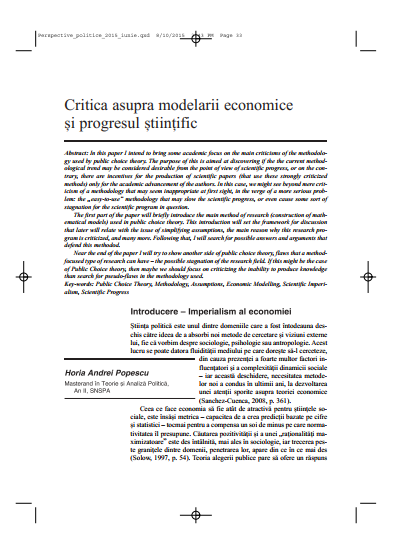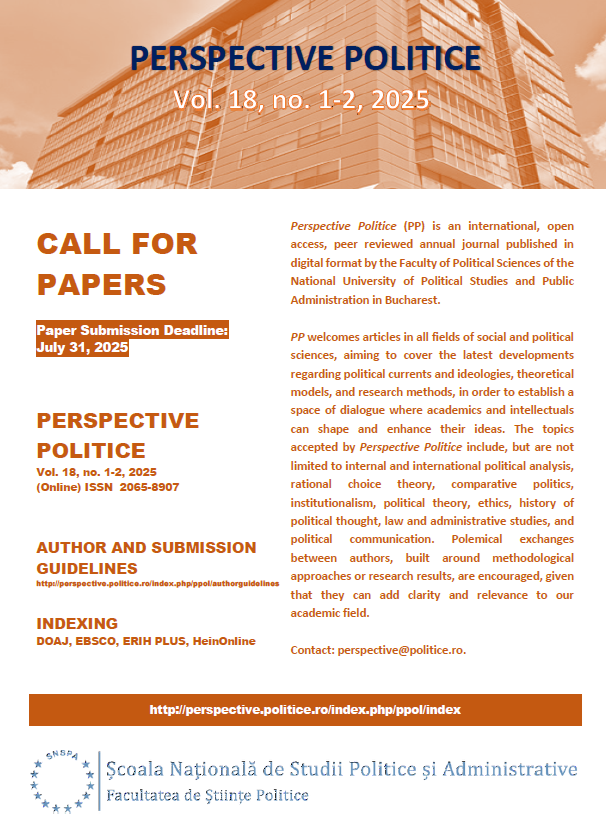Critica asupra modelarii economice si progresul stiintific
Abstract
In this paper I intend to bring some academic focus on the main criticisms of the methodology used by public choice theory. The purpose of this is aimed at discovering if the the current methodological trend may be considered desirable from the point of view of scientific progress, or on the contrary, there are incentives for the production of scientific papers (that use these strongly criticized methods) only for the academic advancement of the authors. In this case, we might see beyond mere criticism of a methodology that may seem inappropriate at first sight, in the verge of a more serious problem: the "easy-to-use" methodology that may slow the scientific progress, or even cause some sort of stagnation for the scientific program in question.
The first part of the paper will briefly introduce the main method of research (construction of mathematical models) used in public choice theory. This introduction will set the framework for discussion that later will relate with the issue of simplifying assumptions, the main reason why this research program is criticized, and many more. Following that, I will search for possible answers and arguments that defend this methodod.
Near the end of the paper I will try to show another side of public choice theory, flaws that a methodfocused type of research can have - the possible stagnation of the research field. If this might be the case of Public Choice theory, then maybe we should focus on criticizing the inability to produce knowledge than search for pseudo-flaws in the methodology used.




